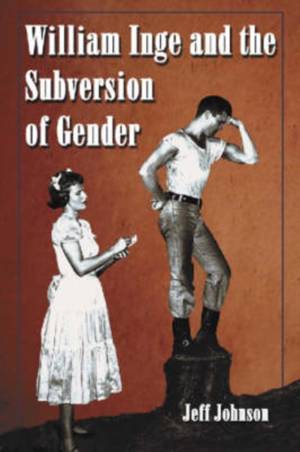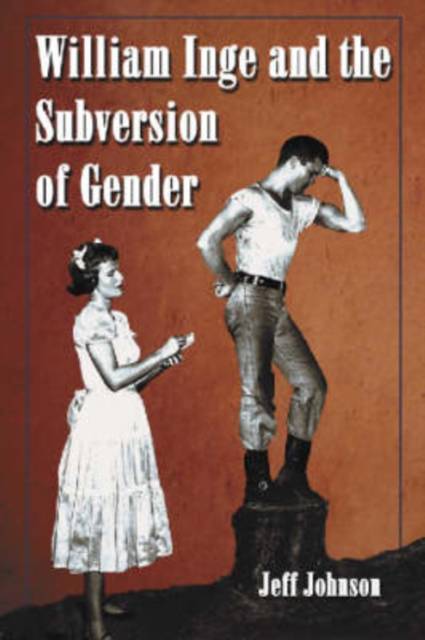
- Afhalen na 1 uur in een winkel met voorraad
- Gratis thuislevering in België vanaf € 30
- Ruim aanbod met 7 miljoen producten
- Afhalen na 1 uur in een winkel met voorraad
- Gratis thuislevering in België vanaf € 30
- Ruim aanbod met 7 miljoen producten
William Inge and the Subversion of Gender
Rewriting Stereotypes in the Plays, Novels, and Screenplays
Jeff JohnsonOmschrijving
Inspired by a meeting with Tennessee Williams, American playwright William Inge found success early, winning a Pulitzer for drama and an Academy Award for best screenplay. His small-town upbringing profoundly influenced his writing, and one of his major recurring themes was the traditional roles of gender.
This close study of Inge's work focuses particularly on his technique of "gendermandering," patterns of gender-role reversals which Inge exploits not only for dramatic effect but also to subvert social expectations. Fully considered are stereotypes and established gender roles, especially as they were reinforced socially during the 1940s and 1950s. The author concentrates largely on material that is strictly Inge's, not adaptations or collaborations, and on work that has been published and is readily available to the general public. All major plays; a collection of his short plays; the screenplay of Splendor in the Grass (1961); and his novel Good Luck, Miss Wyckoff are covered.
Some of Inge's more inaccessible material, including a few short published plays as well as some of the unpublished manuscripts held in the Inge Collection at Independence Community College in Independence, Kansas, is also addressed.
Specificaties
Betrokkenen
- Auteur(s):
- Uitgeverij:
Inhoud
- Aantal bladzijden:
- 192
- Taal:
- Engels
Eigenschappen
- Productcode (EAN):
- 9780786420629
- Verschijningsdatum:
- 18/01/2005
- Uitvoering:
- Paperback
- Formaat:
- Trade paperback (VS)
- Afmetingen:
- 154 mm x 228 mm
- Gewicht:
- 285 g

Alleen bij Standaard Boekhandel
Beoordelingen
We publiceren alleen reviews die voldoen aan de voorwaarden voor reviews. Bekijk onze voorwaarden voor reviews.











